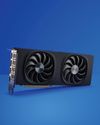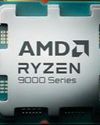
THERE’S SOMETHING inherently human about pushing technology to its limits. Companies do this all the time: building, developing, iterating on designs, new hardware, trying to eek out every last fleck of performance to beat the competition. The same can be said for amateur enthusiasts. There are very few people that don’t try to optimize how they work, their PC, or the hardware inside it.
Overclocking, by its very nature, speaks to that. In essence, it’s a love language for your PC. In the same way that you can get attached to a car, tool, or fishing rod, you can also become attached to a processor. It’s a bit of a bizarre quirk of humanity, this attachment to objects, as if they have personality; a soul.
The thing is, some processors actually do, to a lesser extent. The silicon lottery gifts them with differences. Some are better than others; some worse; some perform in a particular manner if you do one little tweak, and some score higher in one test than an identical CPU at the same spec. Apply enough voltage, adjust the multipliers, increase those clock speeds, and you could draw out more performance for free—at least that’s how it used to be. So what’s changed? Has the golden era come to an end? In a world of high competition and with the likes of Arm breathing down Intel and AMD’s necks, has that at-home pastime retired to the humble shores of PC history? Let’s take a look.
OVERCLOCKING’S HUMBLE ORIGINS
It might come as a surprise, but overclocking has been around for an incredibly long time. In fact, theoretically speaking, you could very much argue that the act of tweaking clock speeds actually originates with the OG manufacturers of those CPUs as they dive into trying to find exactly how far they can push those clock-speeds while keeping the chips themselves stable.
This story is from the October 2024 edition of Maximum PC.
Start your 7-day Magzter GOLD free trial to access thousands of curated premium stories, and 9,000+ magazines and newspapers.
Already a subscriber ? Sign In
This story is from the October 2024 edition of Maximum PC.
Start your 7-day Magzter GOLD free trial to access thousands of curated premium stories, and 9,000+ magazines and newspapers.
Already a subscriber? Sign In

Velocity Micro Raptor ES40
A compact PC that mixes it with the big boys

Intel Arc B580
Intel's second crack at the gaming GPU market

Indiana Jones and the Great Circle
Dr Jones will steal your heart in MachineGames' best effort to date

Improve your memory with Windows Recall
SINCE ITS ANNOUNCEMENT at Microsoft's Build conference in May 2024, Recall has had a torrid time.

HAVE WE REACHED MAXIMUM PC?
Has the desktop reached the point where it can get no better? Ian Evenden looks ahead

THE EVOLUTION OF VIDEO GAME AI
Over time, game AI has become more refined.

X (formerly Twitter) vs Bluesky
The battle of the micro-bloggers

Fun and graphics card games at CES 2025
WE ALL KNEW what was coming at CES: a bunch of graphics cards from AMD and Nvidia. They were pretty much exactly as predicted, albeit with some surprises. AMD managed to botch the launch of its RDNA 4 cards, while Nvidia played 3D chess with the pricing of its new RTX 50 cards.

AMD UNVEILS NEW GAMING AND AI CHIPS
AMD Ryzen AI Max series announced at CES 2025

DOCTOR
Save CCTV system | Multiple audio devices | Encrypted download